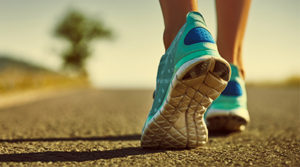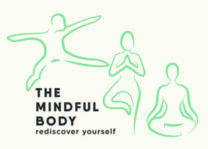I’m back after a long break from posting here. My apologies, but sometimes life gets too busy communicating to communicate! I hope you’ve had a great summer and I’ve enjoyed meeting a lot of new clients over the last few months, as well as planning new classes and collaborations for the autumn. A full and up to date version of the new classes and events is in the calendar and you can also go to the Classes page to see what’s on offer.
Preventative action
In the news this week there has been a lot of discussion about NHS funding, where and how the money should be spent. I feel very strongly that we need to invest in preventative care – particularly as in the UK we have a large proportion of our population that is over 65 years. Small changes to lifestyle and habits around exercise, diet and personal care can make a real difference in avoiding larger problems later on. It is not down to the medical practitioners to make these changes: every individual would benefit from greater knowledge and ownership of their personal health. In general matters we go through life amazingly ignorant of many things that directly affect us and it’s only when things go wrong or break down that we get involved in the mechanisms and processes that help us function. This might be the workings of the combustion engine or…more importantly, our own mental and physical health. We need a good health service that is safe and reliable but we also need to challenge our own passivity: returning again and again to a chiropractitioner to solve the same problem always reminds me of Albert Einstein’s well known definition of insanity “doing the same thing over and over again and expecting different results”. Again Einstein…”We cannot solve our problems with the same thinking we used when we created them.”
And breathe…
 I can’t believe that next week will be the beginning of December and so the last Saturday workshop of 2018! It’s been an action-packed and very eventful year both personally and globally so the theme of this workshop “Take A Breath” seems very apt. We can often feel overwhelmed by the pace of life and the expectations we create for ourselves: therefore it is very important to find time to pause, reflect and simply, take a breath. This December workshop will focus on breathing, mindfulness and relaxation techniques to help build personal resilience and equip you for the month ahead. You can book by going to the bookings page here
I can’t believe that next week will be the beginning of December and so the last Saturday workshop of 2018! It’s been an action-packed and very eventful year both personally and globally so the theme of this workshop “Take A Breath” seems very apt. We can often feel overwhelmed by the pace of life and the expectations we create for ourselves: therefore it is very important to find time to pause, reflect and simply, take a breath. This December workshop will focus on breathing, mindfulness and relaxation techniques to help build personal resilience and equip you for the month ahead. You can book by going to the bookings page here
More information is on the Classes page here
Washington Post Article
This is a great article from a very honest writer who was completely new to The Feldenkrais Method: “All of this minimal effort is harder than it seems — particularly for people like me who tend to thrive on stress, then collapse from it in a continuous loop”. Well worth a read! Click here
Take the Stress Out of Your Knees!
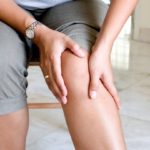
Coming up next week on 3rd November is my First Saturday workshop “Take The Stress Out Of Your Knees”. The most common problem active people develop is pain and stiffness in the knees. Too often this is because you are not using the pelvis or the ankles efficiently so additional strain is transferred to the knee joints – strain that those joints aren’t designed for. This workshop will explore better movement pathways to support walking and running without strain. Book now on this link or email me on dianne_hancock@hotmail.com
How does The Feldenkrais Method help us in learning how to improve the quality and range of our physical movement?
We all have a pattern of moving in everyday life that becomes part of our physical bodies and this is what creates our ongoing self-image, our own personal “stories”. Some of these stories have been added unconsciously and some consciously, added on from our life experiences. These can be an accumulation of events, activities or emotions but is all part of a continuing evolution that started when we evolved into standing upright because of desire and necessity, these are the internal and external factors that shaped our bodies. This evolution is still going on as we adapt to work and living conditions, shape ourselves around furniture, screen watching, driving and sitting. There is also “learned parental behaviour” because when we were young, we learnt to walk and talk by imitating others around us – commonly our parents. We adopt those physical and mental attitudes because of constant exposure to these influences and that can lead onto our mental attitude to ourselves, to preferred physical activities and achievement which in turn again helps to shape our physical bodies, our self-image and self-expectation. This is our earliest form of neuromuscular training and this becomes part of our entire lives. When it comes to learning a different form of moving, our movement history adapts our approach: if you have a trained dancer learning yoga, they will produce a different adaptation to – say – a swimmer or a climber. So is impossible for everyone to be the same when we join a class and come to lie down on the mat. We also have another “history” which accompanies us when we try out a new way of moving and that is our injury history. This may have come about through accident or as a sports injury but they all have an influence of which we may not be aware. This influence may be a tightness on one side or an imbalance in the pelvis or simply a nervous reaction which restricts the range of movement because there is a memory of pain in one part of the body. All these elements feed back to the brain, shaping our personal self-image that is then fed back through the nervous system.
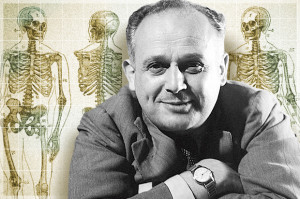
When we experience a Feldenkrais session, we are making a functional change to the way we move and to how we think we can move, creating a new neuromuscular pattern to aid in recovering from injury, old and unhelpful movement habits and strengthening our ability to prevent long term damage to the joints and skeletal structure.
Avoiding Lower Back Pain
There has been so much publicity about lower back pain lately – over 540 million people globally are affected at any one time – a staggering idea. The Feldenkrais Method is very effective at tackling the stiffness and lack of mobility that follows back injury as it gently encourages a better range of movement using the body effectively and safely. I’m running a workshop on Saturday 7th July on “Avoiding Lower Back Pain” and here is the ticket link: https://www.eventbrite.co.uk/e/avoiding-lower-back-pain-tickets-47587145433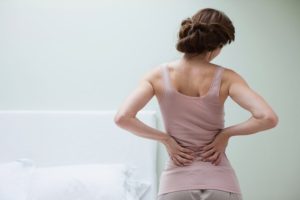
New workshops and new newsletter on its way!
Well, I’m sure I’m not the only one looking forward to the deluge of emails about GDPR going away soon! If you’ve been lucky enough to avoid all the fuss, the new legislation on Data Protection has put a lot of people in a spin. Here at The Mindful Body, it gave us a chance to review all our policies and finally get around to the long-promised newsletter which will be out at the end of this week! For those who have signed up, this fortnightly newsletter will give all the information on forthcoming classes and workshops as well as regular tips and suggestions on how you can look after yourself better and maintain a healthy, flexible body and mind. Classes and events will still appear on the Classes page of this website.
The Joy of Feldenkrais
I work with all kinds of people: some have a regular physical practice such as running, sports, yoga or dance and some just want to be able to get out of bed in the morning without pain or struggle. Whatever the aim, when I see someone discovering better movement – that’s also fun – its a joyous moment.
Happy New Year!
Here we are, at the start of a new year and I’m really excited about the possibilities that could be waiting! January got a great start last weekend with the first First Saturday workshop “Improve Your Stride” at Breathe Pilates. We had a full class, full of a really interesting range of people all keen to explore better ways of moving. If you want to see the dates and themes of the next workshops, head over to http://diannehancock.co.uk/classes/ 